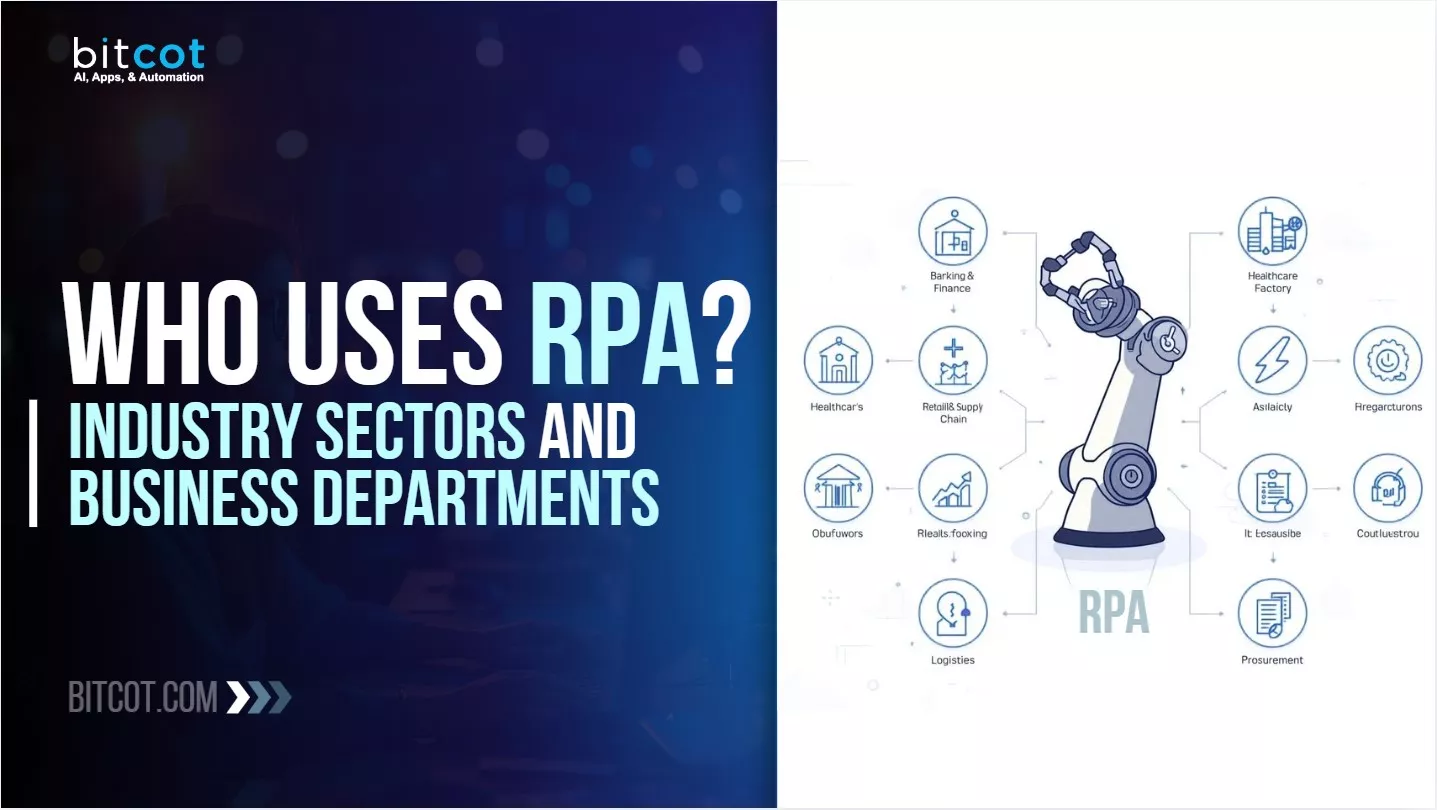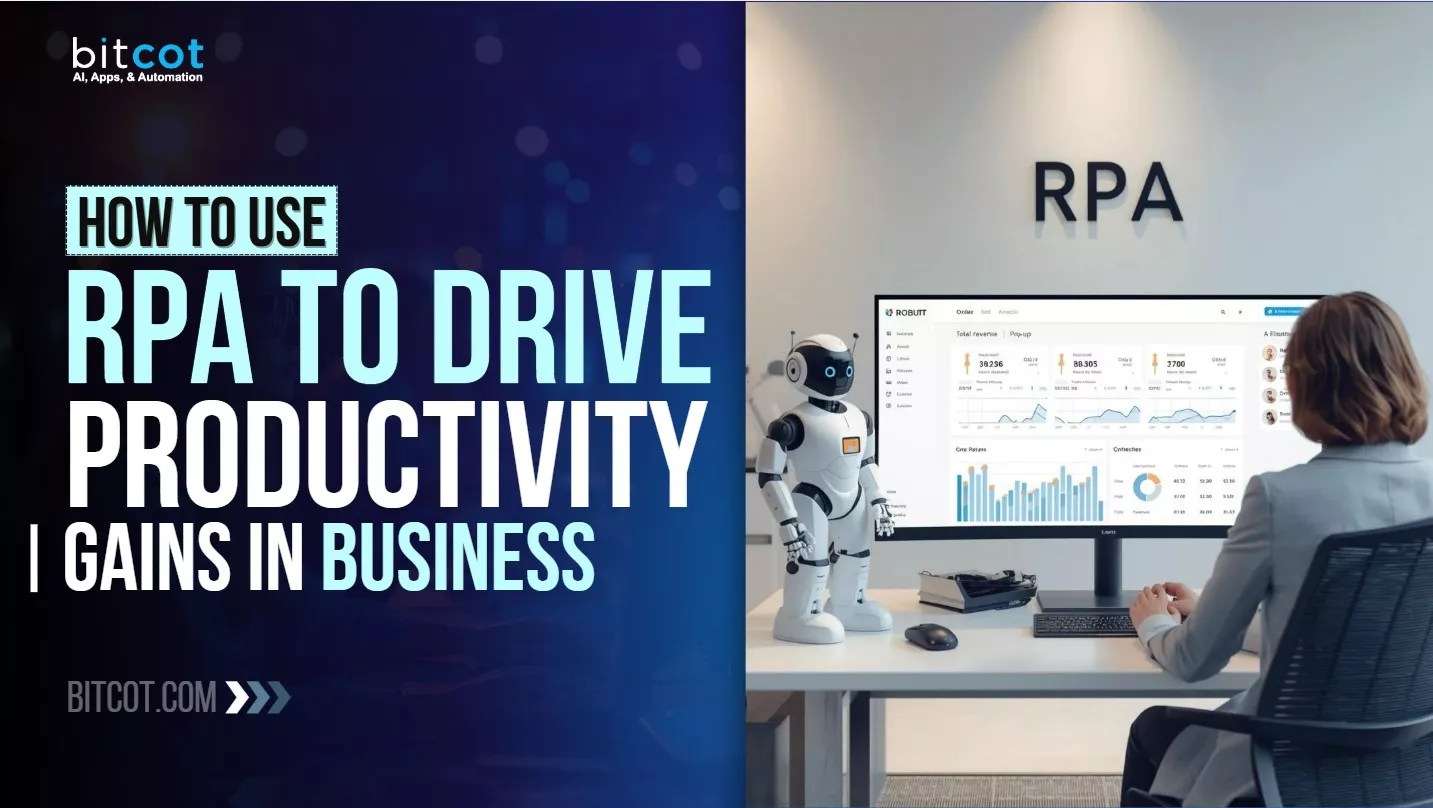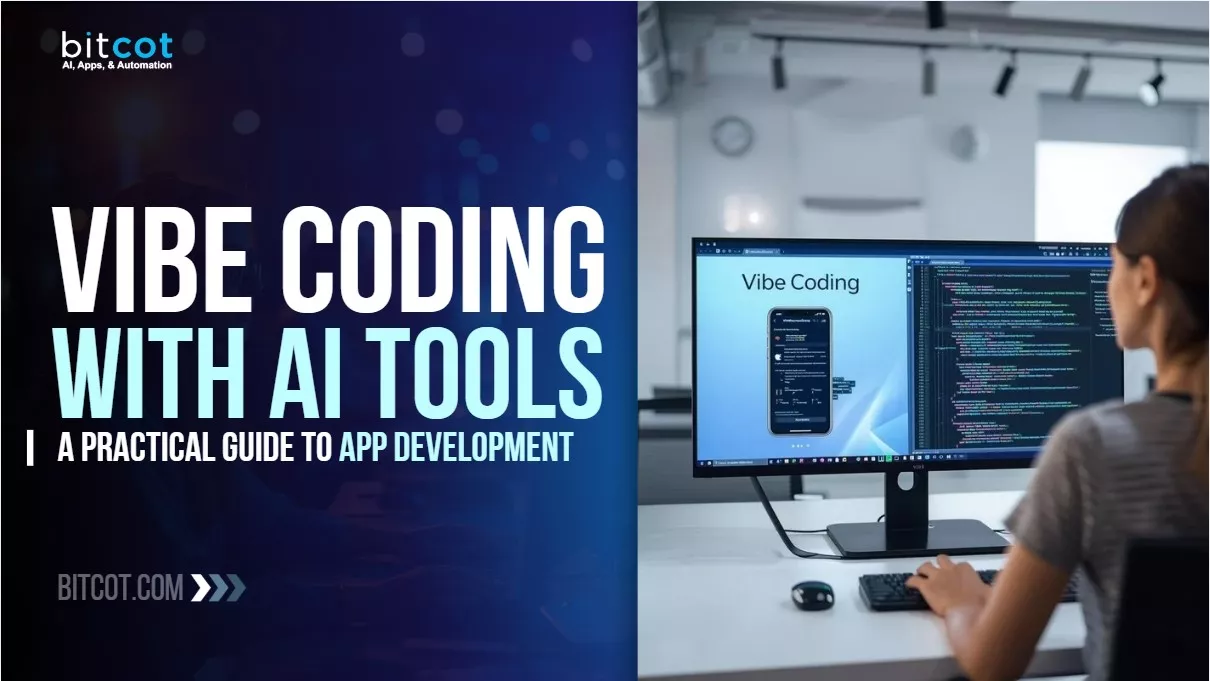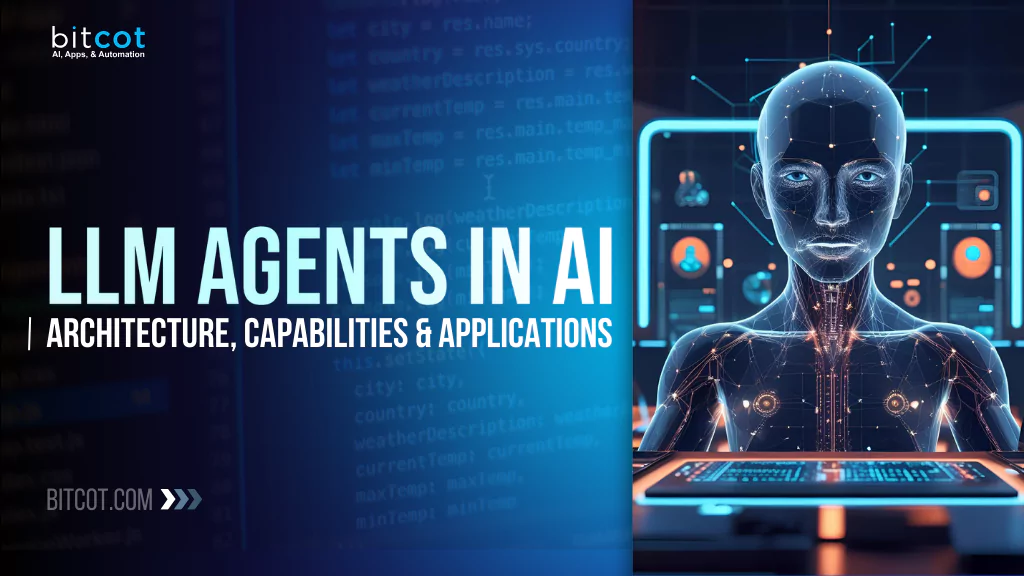
Have you ever found yourself frustrated with AI assistants that can answer your questions but can’t quite follow through on more complex tasks? Maybe you’ve asked a chatbot for help booking a trip, only to realize it can’t coordinate flights, hotels, and car rentals all by itself.
What if your AI could go beyond simple replies and actually plan, reason, and take actions like a real assistant?
This is where LLM agents, AI powered by large language models, come into play. These agents combine the language understanding of advanced models with decision-making abilities and interaction skills, enabling them to handle multi-step tasks, adapt to new information, and work autonomously.
In this article, we’ll break down the architecture that makes LLM agents tick, unpack the unique capabilities that set them apart, and explore a wide range of applications, from customer service and content creation to scientific research and automation.
What are LLM Agents in AI?
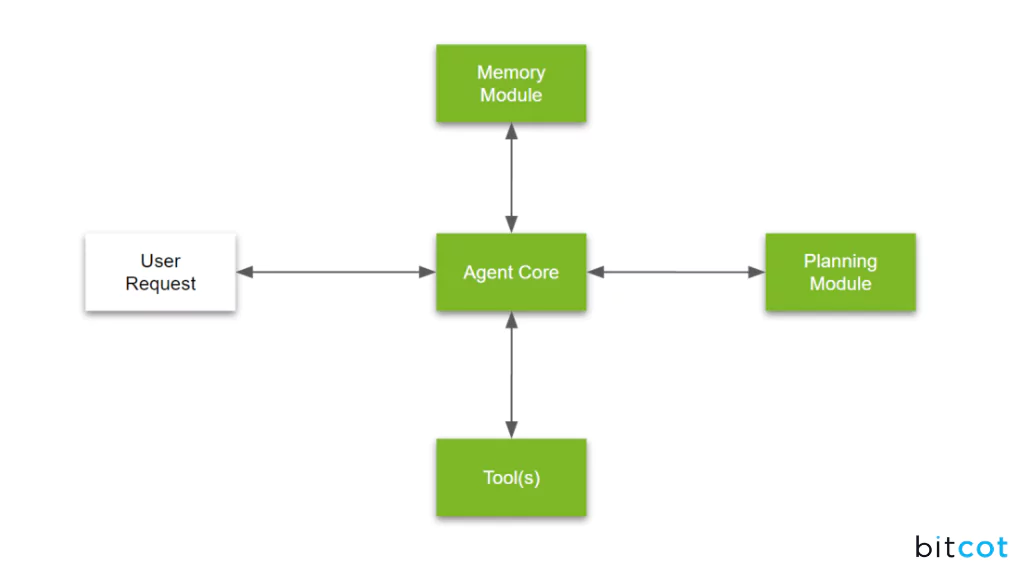
Source: NVIDIA Developer
At a basic level, LLM agents are AI systems built around Large Language Models (LLMs) like GPT that don’t just generate text but also act autonomously to perform complex tasks.
Think of them as intelligent digital assistants with the ability to understand language, reason through problems, make decisions, and interact with other software or environments to get things done.
Unlike traditional chatbots that only respond to questions or commands with pre-programmed answers, LLM agents have a more advanced “brain.” They can break down complicated tasks into smaller steps, plan actions ahead, and even learn from interactions.
For example, instead of just answering “What’s the weather today?”, an LLM agent could plan your day around the forecast, book an indoor activity if it’s raining, and send you reminders, all on its own.
This leap from static text generation to active problem-solving is possible because LLM agents combine natural language understanding with decision-making and execution capabilities. They’re designed to bridge the gap between human instructions and real-world actions, enabling much more dynamic and useful AI experiences.
In essence, LLM agents represent a new class of AI, where language models become proactive agents that can assist, automate, and innovate across countless applications.
Key Capabilities of LLM Agents for Businesses
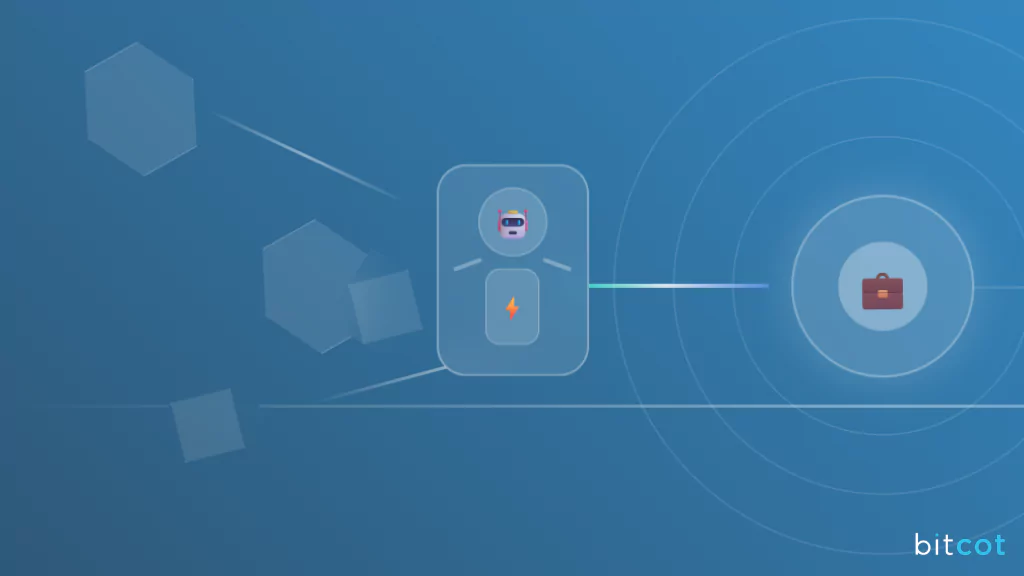
Running a business is challenging. You’re balancing customer needs, team coordination, data management, and countless decisions every day. LLM agents are like your smart, always-on assistants that don’t just respond; they understand, plan, and act in ways that make your life easier.
Let’s break down exactly what they bring to the table and how they can help your business thrive:
Speak Business, Understand Business
LLM agents aren’t just good at reading words; they’re excellent at understanding the meaning behind them.
Think about customer service emails: a frustrated client might express dissatisfaction in subtle ways, and a typical automated system could miss those signals. But an LLM agent can pick up on tone, urgency, and context, then respond appropriately, whether that means escalating the issue or providing a thoughtful, tailored reply.
Inside your company, they can summarize long meetings into clear action points, draft polished reports, or help write marketing copy that fits your brand’s voice perfectly. This ability to grasp nuance means your communications are sharper, faster, and more effective, saving your team valuable time and effort.
Break Down Big Tasks Into Manageable Steps
Complex workflows are a fact of life in business, whether it’s onboarding a new client, launching a product, or managing a supply chain. LLM agents excel at slicing these big, overwhelming tasks into smaller, manageable pieces.
For example, if you’re onboarding a new employee, the agent can coordinate schedules for training, send out all necessary paperwork, set up IT accounts, and follow up on completion, all without you needing to micromanage.
This step-by-step approach reduces errors, speeds up processes, and frees your staff to focus on strategic work rather than repetitive admin.
Take Initiative So You Don’t Have To
One of the biggest benefits of LLM agents is their proactive nature. They’re not just passive responders waiting for instructions.
If they spot a problem, say, a scheduling conflict, low sales leads, or dwindling inventory, they’ll take action on their own. That could mean automatically rescheduling meetings, alerting your sales team to re-engage prospects, or placing a reorder with suppliers.
This proactive mindset helps your business stay agile, avoid costly mistakes, and seize opportunities without constant oversight.
Connect With Your Existing Tools
Chances are, your business already relies on a suite of software, from CRMs and email platforms to project management tools and databases. LLM agents integrate seamlessly with these systems. This means they can pull real-time data, update records, trigger workflows, or send communications across platforms.
Picture this: you tell your agent, “Create a sales report for last quarter and schedule a follow-up call with the top clients,” and it does both in one go.
This kind of cross-platform fluency streamlines your operations and reduces the back-and-forth that often wastes time.
Learn and Get Smarter Over Time
LLM agents don’t just follow fixed rules; they learn from how your business operates and improve with every interaction.
They pick up on your company’s unique workflows, preferred communication style, and common challenges, tailoring their responses and suggestions to fit your needs. Over time, this learning makes them more intuitive and valuable, anticipating what you need before you even ask.
This evolving intelligence means your agent grows with your business, helping your teams work smarter, faster, and more efficiently, becoming a trusted assistant that adapts as your company changes and scales.
Keep Track So Nothing Falls Through the Cracks
Business is full of details, deadlines, and moving parts, and it’s easy for something to slip through the cracks. LLM agents maintain context across projects and conversations, remembering key information like previous decisions, upcoming deadlines, and important follow-ups.
For example, if you’re managing a product launch, the agent keeps track of everything from customer feedback to marketing schedules, internal approvals, and delivery timelines. This memory ensures everyone stays aligned, prevents miscommunication, and helps projects move forward smoothly.
With this reliable oversight, your business stays on track even amid complexity and change.
How Do LLM Agents Work?
How does an agent take a simple request, like “Help me draft a client email” or “Schedule a follow-up meeting”, and turn it into a smooth, useful outcome?
Let’s walk through the typical process step-by-step, so you get a clear picture of how these smart assistants deliver real business value:
1. Listening and Understanding Your Request
When you talk to an LLM agent, it doesn’t just process words; it listens deeply. Thanks to its advanced language model, it understands context, tone, and intent behind your request. Whether it’s a quick question or a complex instruction, the agent figures out what you really want.
For example, it can tell if you need a detailed report or just a quick summary. This thoughtful understanding is key to making sure the agent responds correctly. It’s like having a conversation with someone who truly “gets” your business needs.
2. Breaking Down the Task into Manageable Steps
Once the agent knows what you want, it breaks the task into smaller, logical pieces. It plans the order of each step and decides which tasks can happen at the same time. Say you ask it to prepare a presentation; it will gather data, analyze it, create slides, and draft speaker notes in a clear sequence.
This way, nothing important gets overlooked. The agent’s planning skills keep projects organized and make complex work easier to handle. It’s like having a personal project manager inside your AI assistant.
3. Gathering Data and Connecting to Your Tools
Next, the agent taps into your existing business software to fetch the information it needs. Whether it’s your CRM, calendar, or database, the agent pulls up real-time data automatically. This means no more wasting time switching between apps or copying info manually.
For example, it can grab the latest sales figures or customer details without you lifting a finger. This seamless data access ensures the agent’s answers are accurate and up to date. Your team can trust it to work with your current systems effortlessly.
4. Creating Outputs and Executing Actions
With the data in hand, the agent generates whatever you need, whether that’s writing emails, producing reports, or scheduling meetings. It can handle multi-step workflows smoothly, making sure everything gets done on time and correctly.
Imagine asking it to send follow-ups after a sales call or update project plans without you having to intervene. This automation saves your team hours of repetitive work. It’s like having a reliable assistant who never misses a detail and works tirelessly behind the scenes.
5. Learning and Improving From Feedback
The agent doesn’t stay the same after setup; it learns and evolves over time. Every time you provide corrections or suggestions, it remembers and adjusts future responses. This continuous improvement helps the agent better match your company’s tone, style, and workflow preferences.
Over time, it becomes a more intuitive, personalized partner for your team. The longer you use it, the smarter and more helpful it gets. It’s like training a new team member who quickly becomes an expert.
6. Tracking Progress and Following Up
Finally, LLM agents keep track of ongoing tasks and deadlines using their memory and context features. They can remind you about upcoming meetings, alert you to pending actions, or resume conversations right where they left off.
This proactive behavior helps your business stay organized and on schedule. For busy teams, it means fewer missed deadlines and smoother workflows. It’s like having a diligent coordinator who never lets anything slip through the cracks.
Understanding the Architecture of LLM Agents
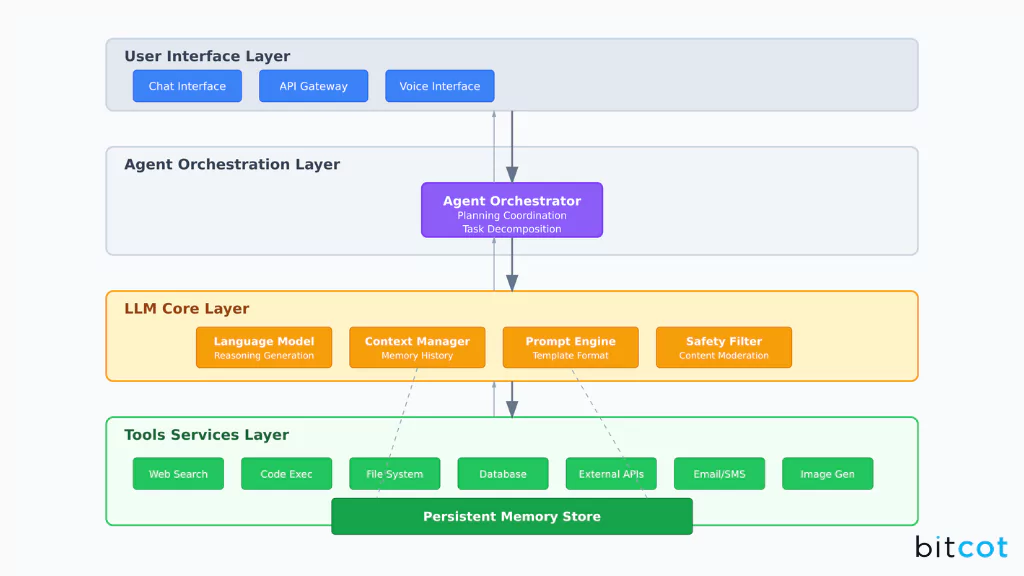
If you’re wondering how LLM Agents work behind the scenes, you’re not alone. Understanding their architecture can sound a bit technical, but it’s really about how all the pieces fit together to create a smart assistant that can think, plan, remember, and take action, all while chatting naturally with your team or customers.
Let’s break down the main parts of this architecture, so you can see why these agents are such game-changers for businesses:
1. The Language Model: The Brain That Understands You
At the very core of every LLM agent is a large language model, the brain behind all the magic. This isn’t just any ordinary software; it’s been trained on massive amounts of text from books, websites, and articles to develop a deep understanding of language, context, and even subtle nuances.
What does that mean for your business? It means your LLM agent can interpret complex requests like a human would.
Whether it’s drafting an email that sounds like it came from your best salesperson or understanding a customer’s frustrated tone in a support chat, the language model “gets it.” It allows the agent to respond naturally, intelligently, and in a way that’s consistent with your company’s style and values.
2. Task Decomposition and Planning: Turning Goals Into Actions
Running a business means juggling complicated tasks that can’t be solved with a quick yes or no. That’s why the architecture of LLM agents includes a clever way to break down big projects into smaller, step-by-step plans.
Imagine asking your agent to prepare for a product launch. Instead of giving you a vague overview, the agent will map out all the necessary steps: coordinating with marketing, scheduling social media posts, drafting press releases, tracking inventory, and more. It’s like having a project manager built into your AI assistant.
This planning ability ensures every detail gets attention and nothing falls through the cracks. For your team, it means clearer workflows and more reliable execution, helping you meet deadlines and reach goals faster.
3. Memory and Context Management: Keeping Track Like a Pro
One of the biggest challenges with digital assistants is their limited memory; they often forget what happened earlier, forcing you to repeat yourself. But LLM agents come with smart memory systems that remember past conversations, decisions, and context.
For your business, this is a game-changer. Let’s say you’re working on a sales campaign and have several back-and-forth conversations with your agent. It remembers the client’s preferences, budget constraints, and previous feedback, so every new interaction builds on what came before.
This ongoing context means smoother, more efficient communication. Your team won’t waste time recapping details or correcting misunderstandings; everything flows naturally, just like a conversation with a trusted colleague.
4. Integration Layers: Making Your Existing Tools Work Smarter
No business runs on just one tool, and the architecture of LLM agents reflects that reality. These agents are designed with integration layers that connect seamlessly to your existing software ecosystem: CRM systems, calendars, databases, email platforms, and more.
This means your LLM agent can pull data from multiple sources, update records automatically, and trigger actions across your workflow without manual intervention. Imagine asking your agent to pull the latest sales numbers from your CRM, generate a report, and schedule follow-up meetings, all in one smooth process.
By bridging all your tools, LLM agents eliminate time-consuming manual work and reduce errors, freeing your team to focus on more strategic, creative tasks.
5. Continuous Learning and Feedback Loops: Smarter Every Day
The smartest assistants don’t stay static; they learn and improve over time. That’s why LLM agents are built with feedback and learning systems that adapt based on real-world use.
Every time your team interacts with the agent, it picks up clues about your preferences, common challenges, and preferred workflows. If the agent makes a mistake and you correct it, that feedback helps refine future responses.
This ongoing learning means your LLM agent grows alongside your business, becoming increasingly tailored to your needs. Over time, it becomes a more reliable, intuitive partner, one that helps your team work faster and more effectively every day.
Types of Architectures for LLM Agents: Choosing What Fits Your Business Best
Selecting the right architecture for your LLM Agents is key to unlocking their full potential in your business. The architecture shapes how the agent understands, processes, and completes tasks, and impacts scalability, efficiency, and ease of management.
| Architecture | Description | Best For | Pros | Cons | Example Tools |
| Single-Agent | One LLM handles all tasks. | Small teams, simple needs. | Easy to deploy, quick. | Struggles with complex tasks. | LangChain, OpenAI Agents SDK |
| Multi-Agent | Multiple agents handle different tasks. | Large, diverse organizations. | Scalable, specialized. | Complex coordination. | CrewAI, AutoGen |
| Hybrid | Central agent oversees, delegates to experts. | Medium-sized businesses. | Balance of control and flexibility. | More complex setup. | LangGraph, Phidata |
Let’s dive deeper into the three main architecture types so you can see which aligns best with your company’s needs and goals.
1. Single-Agent Architecture
In this setup, a single LLM agent acts as your business’s digital assistant, managing everything end-to-end, from interpreting your request to delivering the final output. This architecture is straightforward and quick to deploy, making it perfect for startups or smaller teams looking to add AI capabilities without a heavy technical burden.
It handles general business workflows like drafting emails, summarizing documents, or answering FAQs effectively. But when your needs grow complex, like handling multiple specialized tasks simultaneously, the single agent may struggle to keep up, leading to slower responses or less precision.
Think of it as a versatile employee who wears many hats, but sometimes gets stretched thin when asked to specialize deeply.
2. Multi-Agent Architecture
The multi-agent architecture divides tasks among several LLM agents, each designed to specialize in a specific domain, whether it’s customer support, data analytics, or scheduling meetings. These agents communicate and coordinate, sharing information to solve complex problems more efficiently than a lone agent could.
This setup shines in larger organizations with diverse needs, offering scalability and more precise handling of specialized workflows.
For example, one agent can handle technical support tickets while another generates financial reports, all working in parallel. However, managing multiple agents requires sophisticated coordination mechanisms, increasing technical complexity. It’s like running a well-oiled team of experts, where each member focuses on what they do best.
3. Hybrid Architecture
Hybrid architecture strikes a balance between the single-agent and multi-agent models. Here, a main agent oversees overall tasks and delegates specialized subtasks to smaller, expert agents as needed.
This approach offers the best of both worlds: the simplicity of a central point of control with the power of specialist agents handling complex parts. It’s especially attractive for medium-sized businesses aiming to scale AI without the overhead of managing a full multi-agent system.
The hybrid model also improves flexibility, as the primary agent can adapt task delegation dynamically based on workload or priority changes. Think of it as having a smart manager coordinating a team of specialists, ensuring efficiency and adaptability.
Applications of LLM Agents in Business
When people hear “LLM agents,” they often think of flashy AI demos or sci-fi-esque assistants. But in the real world, these large language model-powered agents are quietly becoming the behind-the-scenes game changers for businesses of all sizes.
The magic lies in their flexibility. Because LLM agents can understand natural language and connect with your existing tools, they slot into almost any business function, from front-line customer support to back-office analysis.
Here’s where they’re making a big difference:
Automated Customer Support at Scale
Customer support is a critical aspect of any business, but it can be resource-intensive. LLM agents help by automating customer service, handling common queries, and providing tailored solutions across various communication channels, such as chat, email, and social media.
- 24/7 availability: LLM agents can provide round-the-clock support, addressing customer concerns promptly without human intervention.
- Contextual understanding: These agents remember past interactions, personalizing the support experience, which reduces the need for customers to repeat themselves.
- Issue resolution: By analyzing incoming queries, LLM agents can offer real-time troubleshooting and guide users through step-by-step solutions, freeing up human agents for more complex issues.
By streamlining support processes and reducing the workload of human agents, businesses save time, improve customer satisfaction, and reduce operational costs.
AI-Powered Sales Assistance and Lead Qualification
Sales teams are always under pressure to meet quotas and close deals, and LLM agents can help optimize this process by automating several key tasks. These AI-powered assistants are particularly adept at lead qualification and timely follow-ups, ensuring that sales teams focus on high-value prospects.
- Lead qualification: LLM agents ask specific questions based on criteria like customer needs, demographics, and behavior, filtering out low-value leads and ensuring that only the best are passed on to the sales team.
- Tailored recommendations: Using customer data and historical interactions, these agents can suggest the most appropriate products or services, improving the chances of conversion.
- Automated follow-ups: LLM agents automatically send personalized follow-up emails or messages, ensuring prospects remain engaged and reducing the time sales reps spend on manual tasks.
By automating repetitive tasks, LLM agents free up valuable time for sales teams to focus on closing deals, improving efficiency, and conversion rates.
Intelligent Document Processing and Compliance Automation
For businesses dealing with large volumes of documents, such as legal contracts, regulatory filings, and financial reports, LLM agents can provide a huge efficiency boost by automating the review and compliance check process. These agents help organizations stay compliant while minimizing the risk of human error.
- Information extraction: LLM agents can read and extract critical data, such as contract terms, financial figures, and compliance clauses, significantly speeding up the review process.
- Automated compliance checks: They automatically compare documents against legal and regulatory frameworks, flagging any inconsistencies or risks for further review.
- Document summarization: LLM agents can generate summaries of lengthy documents, making it easier for decision-makers to absorb key points quickly.
By automating time-consuming and error-prone tasks, LLM agents reduce costs, ensure compliance, and improve the speed of operations.
Predictive Analytics for Business Forecasting
Accurate forecasting is critical for businesses to stay competitive, and LLM agents are transforming this process by analyzing vast amounts of data, including historical trends and external factors, to generate reliable predictions.
- Sales predictions: LLM agents analyze past sales data, customer behavior, and market conditions to forecast future demand, helping businesses adjust their strategies accordingly.
- Inventory optimization: By predicting demand patterns, LLM agents can help businesses optimize their inventory levels, reducing waste and stockouts.
- Dynamic adjustments: LLM agents continuously monitor real-time data and adjust forecasts based on new information, ensuring businesses stay agile in fluctuating markets.
By leveraging LLMs for predictive analytics, companies can make smarter decisions, improve resource allocation, and reduce operational inefficiencies.
Personalized Marketing Campaigns and Content Creation
Content creation and personalized marketing can be time-consuming, but LLM agents are changing the game by generating personalized content at scale, driving more engagement with less effort.
- Tailored content creation: LLM agents can generate email campaigns, social media posts, blog articles, and more, all personalized based on customer segments and preferences.
- Segmentation and targeting: By analyzing customer data, LLM agents can segment audiences and craft messaging that resonates with each group, increasing conversion rates.
- Multilingual capabilities: LLM agents can also localize content for global audiences, ensuring that marketing materials are relevant and culturally appropriate.
By automating content creation and personalization, businesses can scale their marketing efforts while maintaining a high level of customization, leading to better engagement and ROI.
Smart Employee Onboarding and Training
Training and onboarding new employees can be resource-intensive, but LLM agents help streamline this process by delivering personalized and interactive learning experiences.
- Interactive onboarding: LLM agents guide new hires through company policies, training materials, and necessary tasks, offering real-time answers to questions.
- Custom learning paths: LLM agents can tailor training programs based on an employee’s role, experience level, and learning style, ensuring an efficient learning process.
- Real-time feedback: Employees can interact with the LLM agent to clarify doubts, receive instant feedback, and progress through training materials at their own pace.
By automating onboarding and training, businesses save time and resources while improving employee satisfaction and retention rates.
Advanced Market Research and Competitive Intelligence
LLM agents are revolutionizing market research by helping businesses analyze competitors, consumer trends, and industry shifts in real-time, giving them a competitive edge.
- Competitor analysis: LLM agents can scan competitor websites, press releases, social media, and news outlets to track new product launches, pricing changes, and marketing strategies.
- Consumer sentiment analysis: They analyze customer reviews, surveys, and social media to gauge public perception of brands, products, and services, helping businesses adjust their strategies.
- Market opportunities: By processing external data, LLM agents can identify emerging trends, unmet needs, and potential areas for product innovation.
With LLM agents handling market research, businesses can stay ahead of trends, react quickly to competitive threats, and seize new opportunities faster than their competitors.
Automated Financial Reporting and Analysis
Generating accurate financial reports is a crucial but time-consuming task for businesses. LLM agents are helping automate the generation of financial statements and analysis, ensuring faster, more accurate reporting.
- Report generation: LLM agents can automatically create income statements, balance sheets, and cash flow reports, reducing the need for manual data entry.
- Data analysis: They can identify discrepancies, trends, and anomalies in financial data, alerting businesses to potential issues before they escalate.
- Scenario analysis: LLM agents help businesses model different financial scenarios, forecasting potential impacts on revenue, costs, and profits based on various assumptions.
By automating financial reporting and analysis, LLM agents enable businesses to make data-driven decisions more quickly and with greater confidence.
Real-Time Sentiment Analysis and Brand Monitoring
For companies that need to track public opinion and sentiment, LLM agents offer real-time brand monitoring and sentiment analysis across various platforms, including social media, reviews, and news outlets.
- Sentiment tracking: LLM agents analyze customer reviews, social media posts, and online mentions to gauge public sentiment about a brand or product.
- Crisis management: By identifying negative sentiment early, businesses can address PR issues before they escalate, mitigating potential damage.
- Opportunity identification: LLM agents also spot emerging trends and positive sentiments, helping brands capitalize on new opportunities or products.
This continuous monitoring ensures businesses remain responsive to customer feedback, manage their brand reputation, and stay agile in a fast-moving market.
AI-Enhanced Recruitment and Talent Acquisition
Hiring the right talent is a crucial challenge for many businesses. LLM agents are now transforming the recruitment process by automating candidate screening and improving the quality of hires.
- Resume screening: LLM agents automatically analyze resumes, matching candidate qualifications and experiences with job requirements.
- Interview automation: They can conduct initial interviews, asking relevant questions and evaluating responses, ensuring only the best candidates are passed to hiring managers.
- Diversity and inclusion: LLM agents can also help eliminate unconscious bias in the hiring process, promoting diversity and ensuring fair evaluations.
By automating the recruitment process, LLM agents help businesses save time, reduce hiring costs, and improve the quality and diversity of their talent pool.
Final Thoughts
Looking ahead, it’s pretty clear that LLM agents are more than just a trend; they’re a game-changer for how businesses run. These AI-powered tools are making life easier for companies by automating repetitive tasks, offering insights that drive smarter decisions, and transforming the way businesses interact with customers.
At Bitcot, we’re excited about helping our clients tap into the full potential of LLM agents. Whether it’s optimizing customer support, improving sales processes, or fine-tuning marketing efforts, we build AI agent solutions that are customized to fit each business’s unique needs.
By integrating LLM agents into your business, you’re not just upgrading your processes; you’re future-proofing your company. At Bitcot, we’re all about making sure you get the most out of today’s AI-powered advancements, so you can focus on what really matters: growing your business and staying ahead of the curve.
So, if you’re ready to take your business to the next level, we’re here to make it happen. With Bitcot’s expertise, we’ll ensure that your business doesn’t just follow innovation; it leads it.



